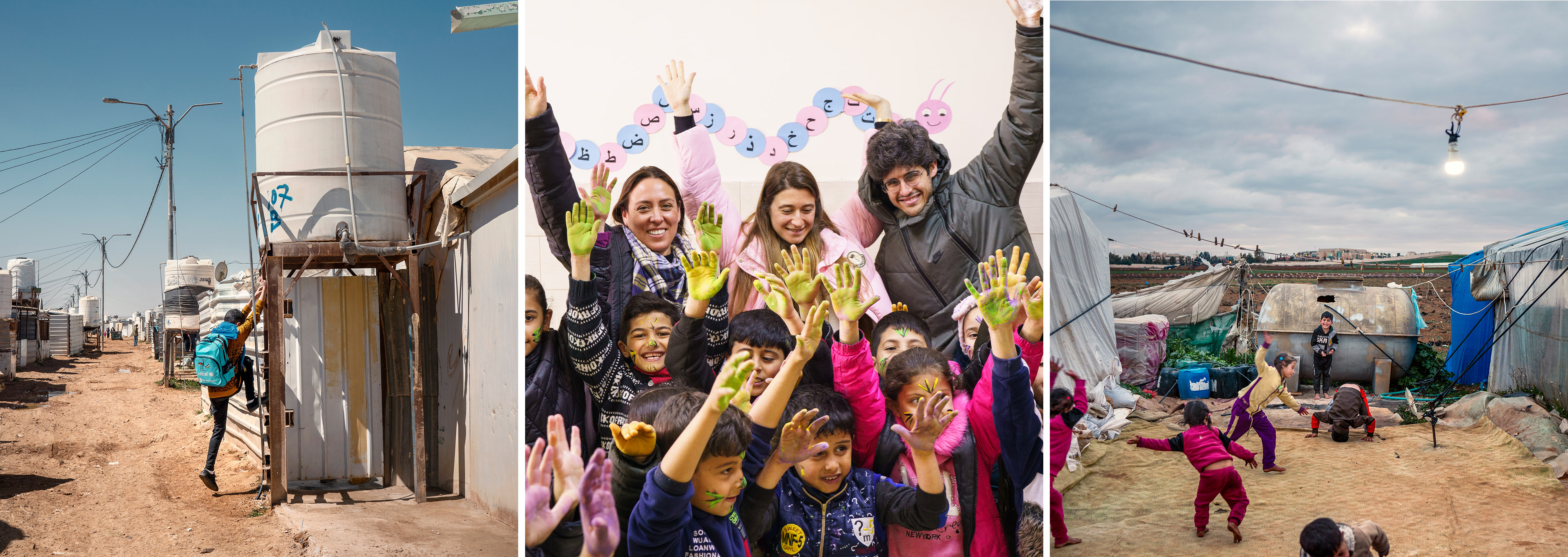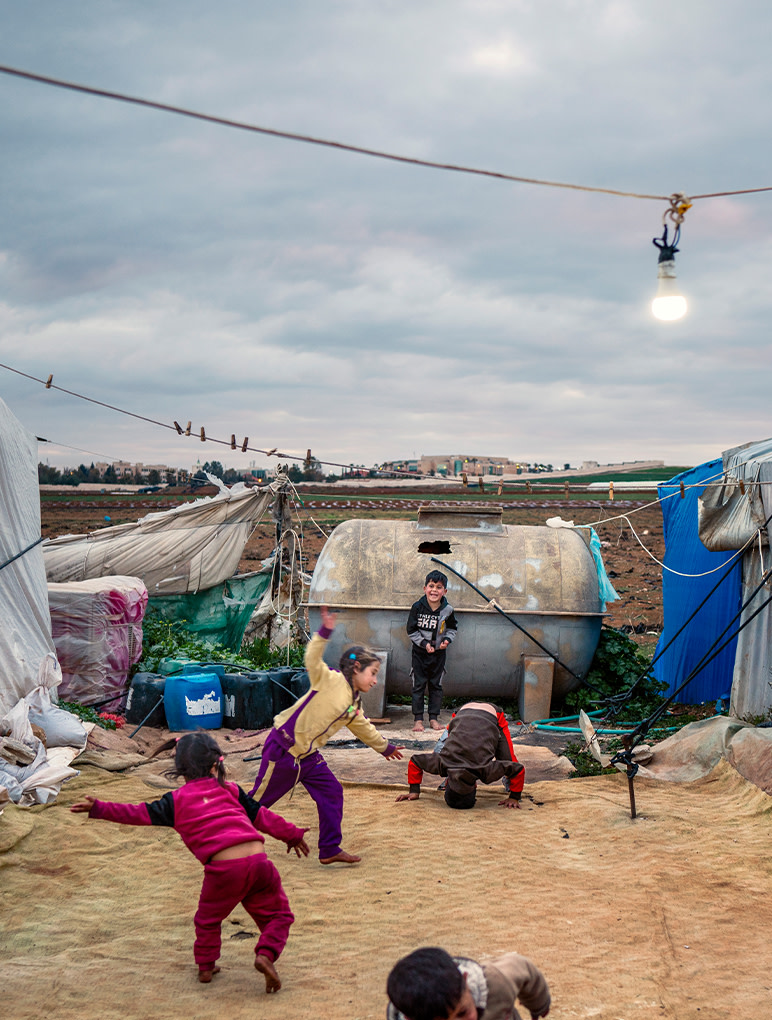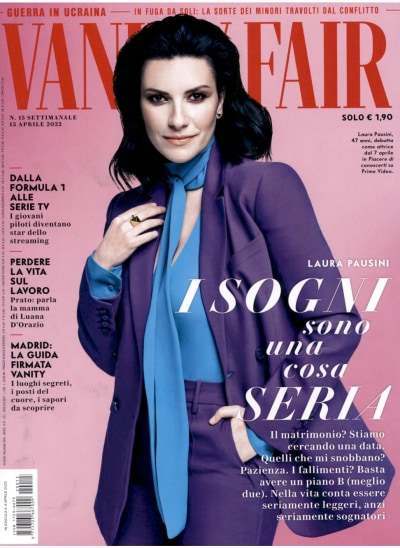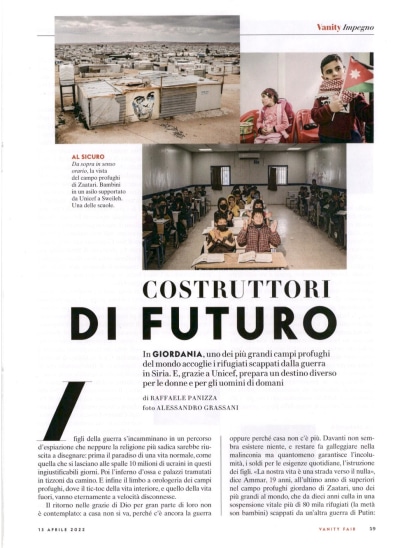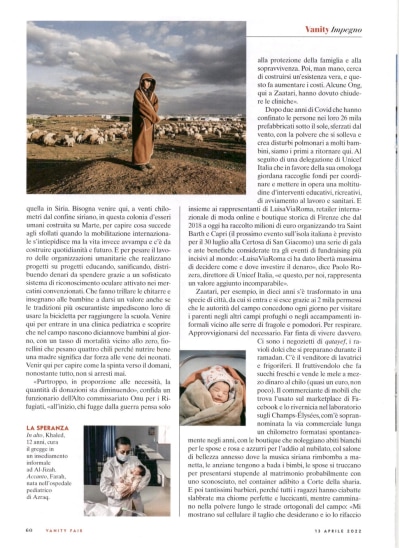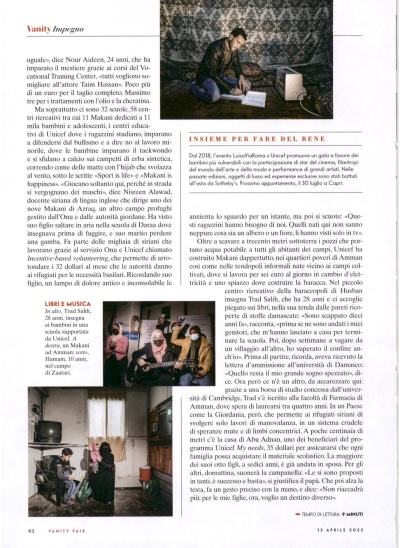WORDS BY RAFFAELE PANIZZA / PHOTOS BY ALESSANDRO GRASSANI
Chapter 1: Beginning
After the years of Covid, we at LuisaViaRoma, together with a delegation from UNICEF Italia, were the first to return. Here where life continues, but it does so inside a bubble, where the future is tarnished glass and the present is bustling despite everything, lightened by a grim hope that transmits an infinite sense of strength and sweetness.
Where for ten years, tens of thousands of Syrian refugees, a population driven out by another war that scars the world, have lived in a foreign country that has welcomed them but inevitably does not have the ability to reconstruct their future. Hundreds of thousands of human beings, half of them children.
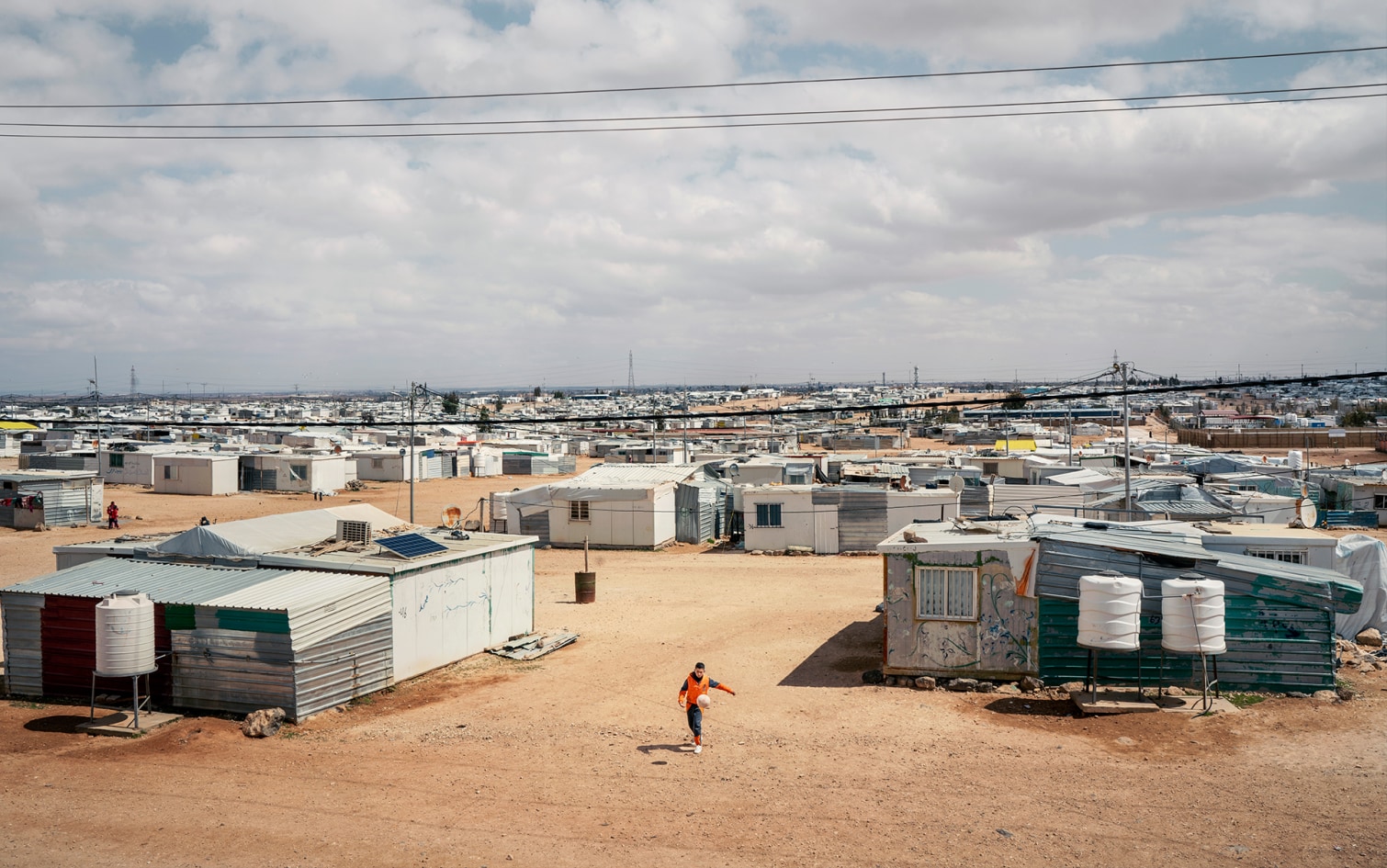
Togheter with the upper management of the company, we came here to see what happens when the lights go out after the great charity galas that we organize every year in Saint Barth and Capri, the next scheduled for July 30th at Certosa di San Giacomo, and to see the fruits of our labor in action in the parched land of Jordan in the refugee camp of Azraq, far from everyone, where bringing education, drinking water and fun, means to bring hope. Especially in the Zaatari refugee camp, where 80,000 people live in an imaginary city created by the drive and life that solemnly tries to resemble something normal, next September will mark ten years since its creation.
Chapter 2: Understanding
The convoy of five Toyota off-road vehicles picks us up early in the morning, in a neighborhood of Hamman beaten by an icy, almost winter wind. Half an hour by car and we arrive at the headquarters of UNICEF Jordan, whose budget of one hundred million dollars a year oversees the education, protection, recreation, and health of hundreds of thousands of Syrian refugees, women and children. The group consists of Luisa, Annagreta, and Nikolaus Panconesi, the children of the founder of LVR, Andrea Panconesi. Also present is Alessandro Grassani, photojournalist for the New York Times and photographer of these shots, the video maker Francesco Petitti, who has previously documented various international crises, and finally, the journalist Raffaele Panizza. All this in a country where Youth & adolescent programme chief Giorgia Varisco recalls, “access to professional livelihood for women is one of the lowest in the world.” Making things worse is the so-called “waiting”: at least five years to find a job after finishing school, if you are a man. At least seven if you are a woman. And there are cases, especially far from the cities, where girls live segregated at home, obligated to care for the family.

Ten million inhabitants. Almost two million Syrian refugees, for whom the situation is even more burdensome because Jordan’s laws prevent them from accessing most of trades, and among those permitted, none are in the least bit noteworthy, their only prospects are working in aesthetic care, agriculture, warehouses, and construction.
There are a total of four refugee camps here in Jordan in which the UNICEF organization, with the contributions from LuisaViaRoma and charity gala guests, provides medicine, vaccines, drinking water, recreation, education, and proper nutrition. In a place so human and yet so alien, thanks to this painstaking work, the attendance rate of children in schools has reached 73%. An encouraging aspect in a complicated reality in which not only physical poverty is fought, but “multidimensional poverty”, that insurmountable obstacle that stops you in your tracks, robs you of your desire and does not allow you to take another step forward. It happens when a population faces insufficient nutrition, which weakens mothers, and in turn weakens the children. It happens when there are schools but no transport to reach them, and where there are no pens and notebooks insides these schools. When there is no latrine worthy of the name and every day, simply living causes people to become ill.
According to official data, one in four children in Jordan suffers from this subtle form of deprivation.

Chapter 3: Seeing
Enriched with all this information we move to the Sweileh district, where the children of a kindergarten supported by UNICEF are waiting for us with their Jordanian flags colored with crayons, and with their faces painted so that they resemble kittens. Three classes. One hundred little souls. Four teachers with very long eyelashes who relate to the children with infinite sweetness. “The first day they arrive here we sit down to talk to them, to understand if they are experiencing situations of deprivation in the family, and we promptly intervene,” says the director of the school, “many suffer from forms of depression, others find it hard to concentrate. After all, they are children of war.”
From the floor above comes the rumble of a speaker blasting curious Arab techno music. It’s playing in the Makani rooms, which means “my space”, one of the many community centers for educational, recreational, and cultural purposes (in the Zaatari refugee camp there are eleven) that UNICEF, thanks to contributions from LuisaViaRoma, has prepared in every corner of Jordan. Boys spend time there in the afternoons. The girls in the morning. Today, surrounded by the beating rhythm, there is a colossal Lego tournament, with small groups competing to build the most complex structure in the shortest possible time. Eventually, the winners will be awarded a paper medal. But what they do not risk losing is much more important: “Having them here, we can not only contribute to their education, but above all we are able to monitor the problematic cases,” explains the case manager of the Makani rooms, Walaia Fatah, “we intervene in cases of child labor, child marriages, bullying and domestic violence. What you see here are the folders full of reports: on average, there are at least three a day.”

The data shows how much it’s still necessary to intervene, how much the children of wars should not be forgotten, even when the guns are silent, or when the guns begin to fire in other parts of the world, such as in Ukraine now: among Syrian refugees, one in four girls becomes a child bride. Three thousand children live separated from their families. Seventy thousand work and do not go to school. Only 28% of babies between six and twenty-three months receive adequate nutrition. 33% of Syrian refugees suffer from mental and emotional problems.

Chapter 4: Hoping
Even in the cultivated fields, far from the city, UNICEF has built its Makani. In the many informal tented settlements we visited, men and women collect strawberries and tomatoes for a few pennies a day, in exchange for a place to build a shack and connect to the electricity grid.
They have all fled the agricultural areas of southern Syria, and rather than the barren landscape of refugee camps they prefer this kind of muddy, isolated, but at least more familiar and heartfelt freedom. 112 families live in the informal settlement of Um Al Basteen. 560 people. And as always, half of them are children. In the informal settlement of Jizeh live 62 families, here UNICEF, through the WASH project, has constructed a system of latrines and provided access to drinking water for everyone. 210 people. And again, half of them are children.

“At half past seven the UNICEF minibus arrives and takes the children to school for the first session. At 12:30 the second starts. It returns to pick them up and bring them back home,” says Abdullah Al Areed, one of the animators of a little Makani, a colorful container, brought here and placed in the mud. Trad Salih, 28, also teaches at the structure, he is bent over books in his well-kept hut, the walls covered with damask fabrics: “I fled Syria ten years ago” he says, “first my parents left, they left me at home to finish school. Then I wandered for weeks between one village and another, until I reached the border.” Before fleeing he received an admissions letter to the University of Damascus: “That remains my great broken dream,” he says. But now he has another, to cultivate in this suspended limbo: thanks to a scholarship granted by the University of Cambridge, he has enrolled to study pharmacy in Amman, and in three years he will graduate. “But, if one day I will really be able to build a real life here, only God knows.”

Not far away we are welcomed into Abu Adnan’s home, who awaits us at the door with his wife and eight children. They are one of the many Syrian families to benefit from the UNICEF cash program, 35 dollars a month that can be spent using an optical scanner, connected to sophisticated blockchain technology, present in the affiliated facilities. Adnan has been in Jordan since 2013 and six of his children go to school regularly. “We learned about this aid thanks to word of mouth on Facebook among Syrian groups,” he says, “so I immediately phoned the UNICEF Help Line and they included us in the program. Without this money we would not really be able to survive.” Five of his children have experienced the tragedy of fleeing from their home. Three, however, were born here: “We drove to the border, where we stayed for ten days and where I built a tent to shelter them. What have we brought with us, from our previous world? Nothing. Just water and blankets to cover the children.” Their home in Syria was destroyed.

Chapter 5: Dreaming
10 YEARS IN ZAATARI
Zaatari is all that I know
Video documentary by Francesco Petitti – Mivida
Hamam is 10 years old, the same age as the refugee camp Zaatari where he has lived since birth along with his six siblings. In his own words, he talks about the dust and an uncertain future, but thanks to UNICEF and LuisaViaRoma, his future holds more possibility. This video documentary shows the world through his eyes. It was commissioned by LuisaViaRoma and created by Francesco Petitti of the Dutch agency Mivida.
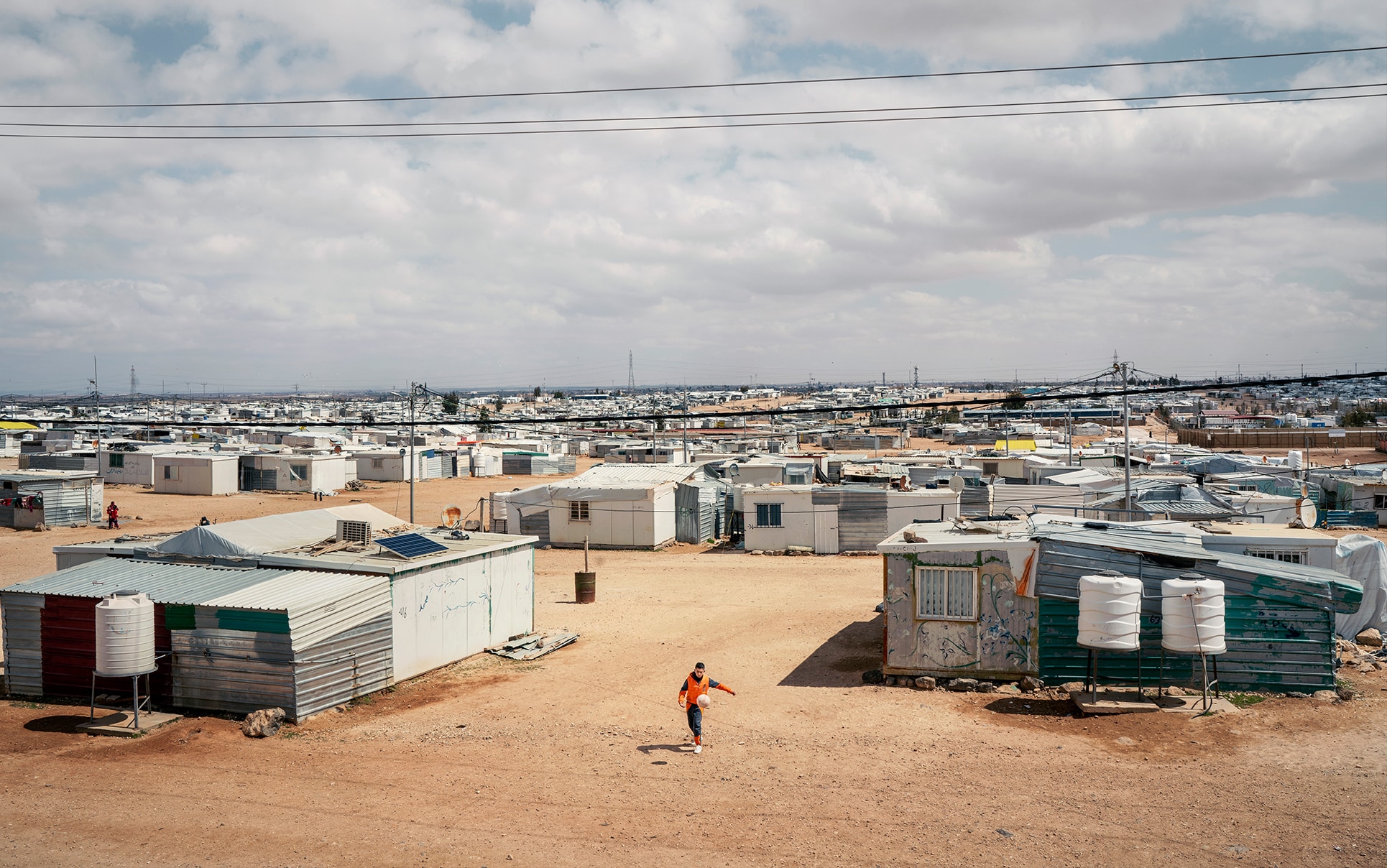

In the Zaatari refugee camp, the largest in the world, twenty kilometers from the Syrian border, there are 38 schools, 52 recreational centers, and 11 Makani where 11,000 children play and study.


Above all, there is drinking water that reaches all 26,000 prefabricated buildings thanks to wells dug 350 meters underground – in a country where there is no water – thanks to the WASH project by UNICEF. Peering into the classrooms, teachers can be seen projecting the phonemes of the Arabic alphabet on overhead projectors, using the tablets provided thanks to donations from NGOs. You learn to use the computer. Not to respond to violence with violence. To manage the little money that circulates, according to the program outlined by the Life Skills courses. “In the camp there are many opportunities for work and paid volunteering, in areas that are not accessible to us out there, such as teaching or healthcare,” explains Manwer, 39, who works as an assistant in one of the schools of the camp. He fled Syria in 2013, now he has a job and a house for his six children, who unfortunately all suffer from chronic health problems: “they have asthma, because there are no trees here, and the wind blows clouds of dust that affect the lungs.” In hope of blocking this insidious cloud, Manwar planted an olive tree outside his container, and a pergola where grapes grow: “we cannot go home, there is still war, and we are afraid. I applied to be moved to another country, where at least the children can see some nature. It will be what God wills.”

Meanwhile, and despite everything, life continues. There are beauty salons where brides-to-be get ready for their bachelorette parties. The fruit and vegetable shops and those that prepare qatayef, the sweet ravioli that are cooked every day during Ramadan. There are even some furniture dealers who find used items on Facebook Marketplace and then repaint and resell them in the workshops on the Champs Èlysées, the nickname given to the shopping street more than a kilometer long that has spontaneously formed over the years. Little boys swarm through the dusty streets spurring on small chariots pulled by donkeys, in a spectacle of youth that takes your breath away. In the camp, nineteen children are born every day, with a mortality rate close to zero, little gems weighing four kilos, with well feed mothers the newborns are stronger.

“In reality, the birth rate has dropped a little since we educated women to let time pass between pregnancies,” explains Eresso Aga, health manager of UNICEF Jordan. There are also fewer children being born since a large solar power plant was installed outside the camp, and electricity is available around the clock.” After all, in the dark, what do you do? Make love or you keep dreaming.

